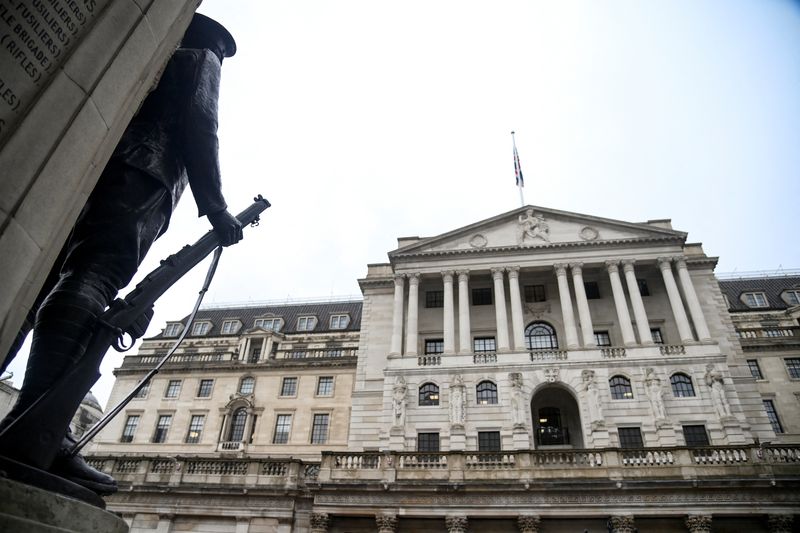LONDON (Reuters) -The Bank of England (BoE) cannot consider the threats posed by inflation to be under control and interest rates will need to rise further but the economy is going into a recession, complicating the outlook, its chief economist said.
"I think we cannot declare victory against second-round effects, but we are entering a recession," Huw Pill said at a conference organised by the bank UBS on Tuesday. "That's a difficult trade-off environment for monetary policy."
Last week, the BoE raised borrowing costs by the most in more than 30 years when it increased Bank Rate by three quarters of a percentage point to 3.0% in a bid to smother the risks that an inflation rate running above 10% turns into a long-term problem.
But the central bank also told investors that they were pricing in too many interest rate increases in the future, a message that Pill said was an attempt to give a more realistic view of where Bank Rate was heading.
The former Goldman Sachs (NYSE:GS) and European Central Bank economist said tightness in the labour market remained very persistent, despite the slowing economy, although "at some point" the BoE would have to think about the appropriate level of Bank Rate.

"We're not meant to be inflation nutters," Pill said. "We are meant to sort of manage this trade-off in a way that avoids unnecessary, counterproductive maybe, disruptions to the real economy."
Pill said he was sceptical that front-loading interest rate increases could bring about an "immaculate disinflation" with no real-world consequences, addressing criticism that the BoE had been too slow to raise borrowing costs.